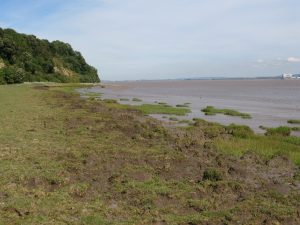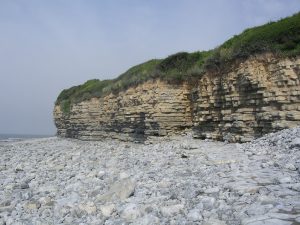Championing Coastal Coordination
Introduction
The Championing Coastal Coordination (3Cs) project is an Environment Agency initiative with support from Natural England, the Marine Management Organisation and the Association of Inshore Fisheries and Conservation Authorities. It is a collaboration seeking to explore how to enhance and progress coordination for coastal sustainability and resilience in England. This is in recognition of the major challenges that we face in our coastal and estuarine environments. The coast consists of many highly interconnected landscapes and seascapes, with a diverse mix of ownership and governance arrangements. The management of coastal issues poses a set of complex challenges unlike those inland. The number and diversity of public and private sector interests is often highest at the coast, with a proportionate increase in the complexity of planning and management in this highly contested space.
Coastal communities are on the frontline of climate change, facing increased risks from the impact of coastal change through storms and sea-level rise, with serious challenges of future land and sea management priorities to be faced. Coastal zones often attract intensive investment in development, such as housing, ports, recreational and transport infrastructure. Economic competition for space between diverse and legitimate interests places multiple stressors on coastal and estuarine environments and can result in coastal squeeze and habitat loss. If these pressures are not well balanced, public access and enjoyment can be compromised and ecosystem health can deteriorate. Existing estuarine and coastal habitats provide important benefits. Restored, recovered and resilient coastal habitats provide functioning, nature-based solutions for mitigating and adapting to the impacts of climate change as well as a wide range of other ecosystem service benefits such as carbon sequestration, flood mitigation and biodiversity improvement.

Funding
The aim of the 3Cs funding is to test and trial the following three themes:
1. Coordinating planning and delivery of locally owned plans and place-based initiatives through governance frameworks to: better connect decision-makers in places; facilitate collaborative restoration planning and delivery; incorporate data from all different sectors of the community; strengthen policies and provide a direct link from national governance to local communities.
2. Coastal champions to strengthen capacity and capability in local stewardship: incorporating environmental, social and economic processes that span land and sea; including all willing to be involved in goal setting, planning and delivery; creating a network of action with regular feedback on impact; engaging at a range of levels to exchange knowledge, share and acknowledge what is valuable, understand multiple perspectives and gain a high degree of support for local delivery; strengthening engagement, facilitation and outreach incorporating environmental data into decisions at a local business level.

3. Restoration and recovery of natural habitats: increase estuarine and coastal natural capital by providing more space at the coast for coastal processes and practical restoration to allow estuarine and coastal habitats to respond to sea level rise and climate related storms, reduce conflict between human land use and coastal change, reduce impacts of biodiversity loss, encourage nature recovery, improve water quality and provide opportunities for ‘blue carbon’ and recreational access. Explore innovative ways to restore degraded estuarine and coastal habitat
The overall ambition is to strengthen and support a national framework covering the entire English coast. The aim is to better coordinate local improvements to coastal environments through a collaborative approach of organisations from the public sector, private sector and civil society sectors.
Working with partners, the Severn Estuary Partnership is involved in a number of 3Cs projects, which are due to be completed by the 31st March 2022.
 Severn Estuary Partnership
Severn Estuary Partnership